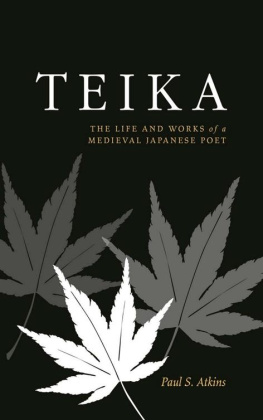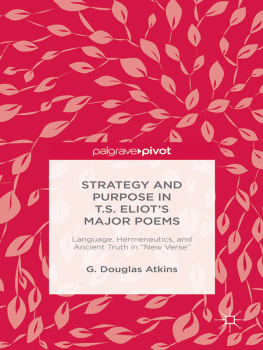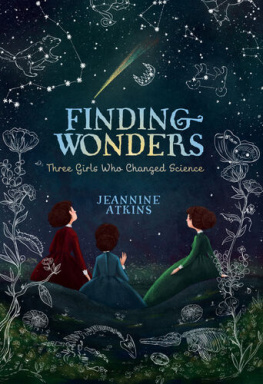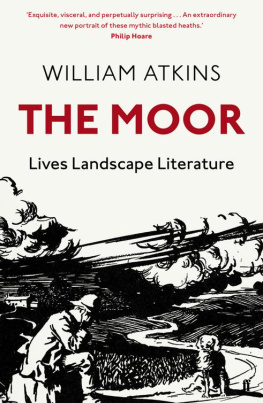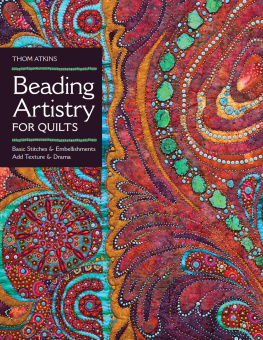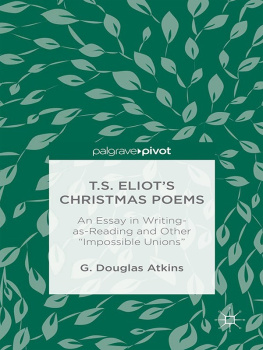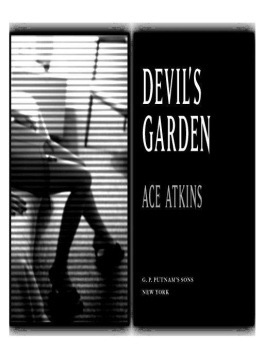Atkins - Teika
Here you can read online Atkins - Teika full text of the book (entire story) in english for free. Download pdf and epub, get meaning, cover and reviews about this ebook. year: 2017, publisher: University of Hawaii Press, genre: Detective and thriller. Description of the work, (preface) as well as reviews are available. Best literature library LitArk.com created for fans of good reading and offers a wide selection of genres:
Romance novel
Science fiction
Adventure
Detective
Science
History
Home and family
Prose
Art
Politics
Computer
Non-fiction
Religion
Business
Children
Humor
Choose a favorite category and find really read worthwhile books. Enjoy immersion in the world of imagination, feel the emotions of the characters or learn something new for yourself, make an fascinating discovery.
- Book:Teika
- Author:
- Publisher:University of Hawaii Press
- Genre:
- Year:2017
- Rating:3 / 5
- Favourites:Add to favourites
- Your mark:
- 60
- 1
- 2
- 3
- 4
- 5
Teika: summary, description and annotation
We offer to read an annotation, description, summary or preface (depends on what the author of the book "Teika" wrote himself). If you haven't found the necessary information about the book — write in the comments, we will try to find it.
Teika — read online for free the complete book (whole text) full work
Below is the text of the book, divided by pages. System saving the place of the last page read, allows you to conveniently read the book "Teika" online for free, without having to search again every time where you left off. Put a bookmark, and you can go to the page where you finished reading at any time.
Font size:
Interval:
Bookmark:
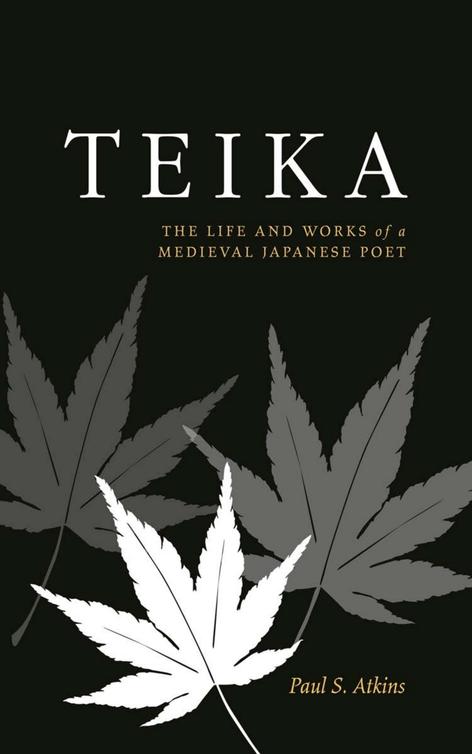
2017 University of Hawaii Press
All rights reserved
Printed in the United States of America
22 21 20 19 18 17 6 5 4 3 2 1
Library of Congress Cataloging-in-Publication Data
Names: Atkins, Paul S. (Paul Stephen).
Title: Teika: the life and works of a medieval Japanese poet / Paul S. Atkins.
Description: Honolulu: University of Hawaii Press, [2017] |
Includes bibliographical references and index.
Identifiers: LCCN 2016032550 | ISBN 9780824858506 (hardcover; alk. paper)
Subjects: LCSH: Fujiwara, Sadaie, 1162-1241. |
Poets, Japanese1185-1600Biography.
Classification: LCC PL791.Z5 A85 2017 | DDC 895.61/22 [B]dc23
LC record available at https://lccn.loc.gov/2016032550
University of Hawaii Press books are printed on acid-free
paper and meet the guidelines for permanence and durability
of the Council on Library Resources.
v
For Mikiyo
vi
In researching and writing this book I have received help from many people and organizations to whom I am deeply grateful.
Professor Akase Shingo of Kyoto Prefectural University sponsored my stay there as a visiting researcher during academic year 20012002. An expert on medieval Japanese poetry and especially the works of Teika, Professor Akase gave freely of his time and energy, offering advice, providing tutorials in reading waka poetry and kambun, and introducing me to leading scholars in the field. He made me into a scholar of waka. The Japan Society for the Promotion of Sciences (JSPS) awarded me a generous postdoctoral research fellowship that made my visit possible.
The members of the Meigetsuki Research Group (Meigetsuki kenkykai), led by Professor Gomi Fumihiko of the University of Tokyo, admitted me to their ranks and gave me information and advice. I am especially grateful to Professors Kanechiku Nobuyuki, Kikuchi Hiroki, and Tabuchi Kumiko.
At the University of Washington, where I researched and wrote most of this book, I would like to acknowledge my former department chairs, Michael Shapiro and William Boltz; my divisional deans, Michael Halleran, Ellen Kaisse, Robert Stacey, and Michael Shapiro; my departmental adminstrator, Youngie Yoon; and all of my colleagues, including Davinder Bhowmik and Ted Mack. David Knechtges and Ken Pyle have been staunch supporters of my work. Kathleen Woodward helped me every step of the way. Librarian Keiko Yokota-Carter (now at the University of Michigan), her successor Azusa Tanaka, and their colleagues at the East Asia Library made sure I had all the books I needed.
The University of Washington Japan Studies Program supported this project with multiple research grants and a publication subsidy. I received funding from the Walter Chapin Simpson Center for the x Humanities, the Royalty Research Fund, the East Asia Center, and the Department of Asian Languages and Literature. Some of the books I used were purchased with funds from an endowment established in the memory of Professor Andrew L. Markus, my distinguished late predecessor, by his family and friends. I received research travel funds from the Takashi and Lily Hori Endowment for Japanese Language and Literature.
At Montana State University, where I began this project, I benefited greatly from the encouragement of Brett Walker. I received financial support from the Dean of the College of Arts and Letters.
The National Endowment for the Humanities awarded me a summer stipend. The Northeast Asia Council of the Association for Asian Studies gave me a grant for a research trip to Japan.
Some of the research included in this book was first presented at meetings of the Waka Workshop, an almost-annual gathering of waka scholars in North America, to read texts together and present new ideas. I benefited from feedback from many people who attended. The hosts of the workshops I attended were Joshua Mostow, Christina Laffin, and Stefania Burk (University of British Columbia); Haruo Shirane (Columbia University); Torquil Duthie (University of California, Los Angeles); Steven Carter (Stanford University); and Edward Kamens (Yale University).
I gave lectures on earlier drafts of this material at the Rocky Mountain Southwest Regional Japan Seminar, the University of British Columbia, the University of Washington, the Association for Asian Studies annual meeting, the University of Colorado, Japan Womens University, and the Congrs Asie & Pacifique. I am grateful to my hosts and for those who gave me valuable suggestions.
For their support of this project in various ways, I thank Steven Carter, Edward Kamens, Stephen Miller, and Laurel Rodd.
I would like to acknowledge the Namikawa family of Kyoto and Robert Singer, of the Los Angeles County Museum of Art, for providing housing to me and my family during the memorable year we lived in Kyoto.
Tom Hare taught me to read classical Japanese and made me into a scholar. He has supported me in this project and in my career in many ways for almost twenty-five years. I am proud to call him my teacher and my friend.
I thank my family, especially my parents. My wife, Mikiyo, sustained me with her love and care. Thank you.
I t is the middle of the night. Let us say it is an autumn night in Kyoto, the capital, and the year is 1450. A man cannot sleep, despite the coolness of the night, despite his comfortable situation. He is seventy years old, a Zen monk who once trained at the storied Tfukuji temple among other places, but now more than that or anything else, he is a poet who writes in the thirty-one-syllable waka form. He has written tens of thousands of these little poems, many of which he lost forever when his house burned down. But he kept writing. He was once punished by the shogun, the most powerful man in the country, and had his lands confiscated. But he eventually got his lands back, and the shogun is now dead, assassinated by one of his own generals. The poet is still alive.
He is alive, but he cannot sleep. He cannot sleep because he is thinking of a poem. It is a love poem written two centuries earlier by the poets hero, who was, of course, another poet. Let us say it is this poem:
shirotae no / sode no wakare ni / tsuyu ochite /
mi ni shimu iro no / akikaze zo fuku
At a parting
of pure white sleeves,
dew falls
and the autumn wind blows
in a color that soaks my soul.
What a marvelwhat a mystery! A man and a woman are in love. He rises in the early dawn to go, before anyone can see him leave. They embrace, their white underrobes nearly indistinguishable from each other. She weeps; he weeps. It is chilly in the autumn morning. There is still dew on the grass outside. The wind blows. It sinks right through them. Everything seems white.
How could the wind have a color? he wonders. And how could one possibly learn to write like this? He keeps reciting the poem to itself, teasing out its impossible secrets. The minutes pass. An hour passes. Now he is completely awake. He tries to think of something else, but winds up thinking of another love poem by the same poet. It is no use. Eventually he has an unsettling feeling: he is losing his mind.
This is more or less a true story, although the details are uncertain. The poet and monk is the person known to us today as Shtetsu (13811459), an astonishingly prolific poet who left behind a collection of thoughts and remarks titled
Font size:
Interval:
Bookmark:
Similar books «Teika»
Look at similar books to Teika. We have selected literature similar in name and meaning in the hope of providing readers with more options to find new, interesting, not yet read works.
Discussion, reviews of the book Teika and just readers' own opinions. Leave your comments, write what you think about the work, its meaning or the main characters. Specify what exactly you liked and what you didn't like, and why you think so.

